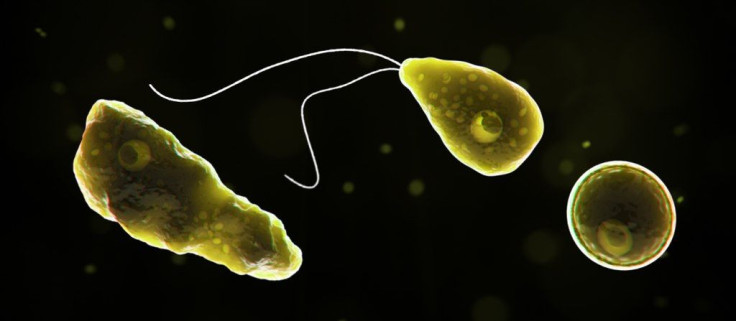Rare Brain-Eating Amoeba Infection Kills Nevada Boy After Trip To Lake Mead
A Nevada boy reportedly died after infected by a brain-eating amoeba, which authorities believe he might have been exposed to after visiting Lake Mead.
The Southern Nevada Health District (NHD) said in a press release Wednesday the child might have come in contact with the microbe in the Kingman Wash area, in the Arizona side of the lake in early October.
The boy began to experience symptoms a week later. The NHD didn't share the name and age of the boy, but said he was under the age of 18 and a resident of Nevada's Clark County.
"Naegleria fowleri is commonly found in bodies of warm freshwaters, such as lakes and rivers, and geothermal water, such as hot springs. The amoeba infects people by entering the body through the nose and traveling to the brain. It cannot infect people if swallowed and is not spread from person to person. The infection is extremely rare, and almost always fatal," the statement read.
"My condolences go out to the family of this young man," said Dr. Fermin Leguen, District Health Officer for the Health District, in the press release. "While I want to reassure the public that this type of infection is an extremely rare occurrence, I know this brings no comfort to his family and friends at this time."
Meanwhile, the park addressed the death saying this was the first recorded fatality due to Naegleria Fowleri contracted from Lake Mead, CNN reported.
The NHD said in its statement the Centers For Disease Control and Prevention confirmed the death to be a result of an infection caused by Naegleria fowleri.
What is Naegleria fowleri?
The CDC describes the bacterium as a "free-living" one that causes primary amebic meningoencephalitis (PAM), a disease that targets the brain and the central nervous system and manifests itself with symptoms like stiff neck, seizures, hallucinations, and coma.
The symptoms can emerge anywhere between the first to the 12th day of contraction, and once they begin, the patient's health rapidly worsens, and the person usually dies within five days although the timeline can vary.
PAM is extremely rare, but kills an infected person in almost every instance. The U.S. has 154 known cases of the infection between 1962 and 2021, of whom only four survived.
To avoid the bacterium, it's best not to swim in fresh warm water, the CDC said. In case of going underwater, it advises people to plug their noses and avoid ducking their heads into the water altogether.

© Copyright IBTimes 2024. All rights reserved.






















